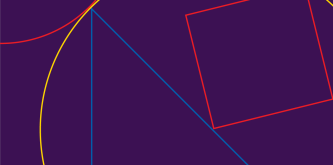The German court referred to the CJEU a request for a preliminary ruling on the removal of references by the search engine operator at the request of the applicant.
Two directors of a group of companies requested Google to de-reference the results of searches made by their names, claiming that they contained inaccurate information. They also requested the removal of photographs of themselves displayed as preview images. Google refused to comply with these requests.
Interpreting the provisions of Regulation (EU) 2016/679, the CJEU ruled that the search engine operator is obliged to accept the request for de-referenceing if the applicant submits relevant and sufficient evidence to support the request which establishes that the information contained in the indexed content is factually inaccurate. The applicant is not required to submit a court decision obtained against the publisher of the website in question.
Unlike references to articles, as regards the display of photographs in the form of “thumbnailsˮ, the CJEU states that their independent information value must be taken into account, without considering the context of their publication on the website from which they are taken. However, if they are linked to a reference that has been de-referenced, they should also be removed.
Two directors of a group of investment companies have asked Google to de-reference the results of a search made by their name. The results of these searches contained links to certain articles that were critical of the group’s investment model. They showed that those articles contained inaccurate statements.
They also requested that the photos representing them, displayed as thumbnails, be removed from the list of results of an image search carried out on the basis of their names. This list did not retrieve elements of the context of the publication of the photographs from the indexed web page, the initial context of the publication of the images being neither indicated nor otherwise visible when the preview image is displayed.
Google refused to comply with these requests, referring to the professional context in which the articles and photos were set and arguing that it was unaware of the alleged inaccuracy of the information contained in those articles.
The Court ruled, with regard to the referencing of articles, that it is not necessary to produce a judicial decision, but the applicant must prove the manifest inaccuracy. The Court also added an obligation for the search engine operator: if it does consider the information to be manifestly inaccurate and the applicant initiates judicial or administrative proceedings to prove its inaccuracy, the operator must also add to the search results a warning concerning the existence of such proceedings.
With regard to thumbnails, the Court held that the extraction of thumbnails from the pages where they are initially uploaded and their separate display in an image search constitutes a search independent of that of the original page, the user being able to follow the identification of the images only.
However, if the request to de-reference the source page is granted, the display of the images contained in the source page as thumbnails would have to be removed. Otherwise, the practical effect of de-referencing the article would be compromised since internet users would continue to have access to the entire article, by virtue of the link contained in the thumbnails.





